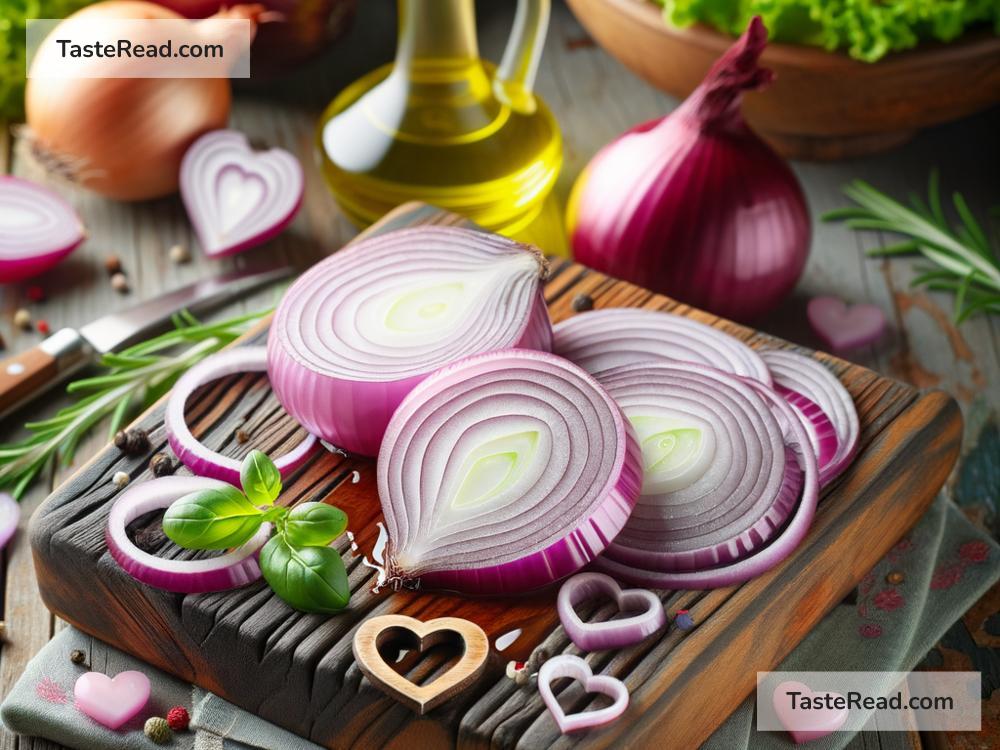The Surprising Link Between Onions and Heart Health
When people talk about eating for better heart health, we often imagine leafy greens, fatty fish, nuts, or even berries. But did you know that a humble kitchen ingredient could also be a heart-health superhero? That’s right—onions might play an important role in protecting your heart. These often-overlooked vegetables pack a nutritional punch while adding flavor to your food.
In this article, we’ll explore how onions can help your heart stay healthy, why they’re good for you, and how you can easily add them into your diet.
What’s Inside an Onion?
Before we dive into onions’ heart health benefits, let’s take a look at what makes them so special. Onions contain several health-boosting nutrients, including:
– Antioxidants: Onions are rich in antioxidant compounds that help fight damage caused by free radicals, which are unstable molecules that can harm your body, including your heart.
– Flavonoids: These are natural plant compounds that have many health benefits. One specific flavonoid called quercetin is found in high amounts in onions and is particularly linked to heart health.
– Vitamins and Minerals: Onions are a good source of vitamin C, vitamin B6, potassium, and other nutrients that play a role in overall well-being.
What Makes Onions Good for Your Heart?
The many nutrients found in onions work in harmony to protect your heart and improve its function. Here’s how onions can help your heart:
1. They May Lower Blood Pressure
High blood pressure is a major risk factor for heart disease. Studies suggest that quercetin, the flavonoid found in onions, may help reduce blood pressure levels. It has anti-inflammatory and antioxidant properties that can improve the health of your arteries and encourage better blood circulation.
2. They Can Reduce Bad Cholesterol
Onions contain compounds that may help lower LDL cholesterol—the “bad” cholesterol that can build up in your arteries and increase your risk of heart attacks and strokes. The antioxidants in onions protect your arteries by reducing the buildup of plaque.
3. They Fight Inflammation
Chronic inflammation in the body has been linked to heart disease. Onions are packed with anti-inflammatory compounds that can neutralize harmful substances in your bloodstream. This reduces overall inflammation and lowers your heart disease risk.
4. They Support Strong Blood Vessels
Onions are rich in sulfur compounds, which give them their sharp taste and smell. But these compounds also benefit your heart by improving the elasticity of your blood vessels. Flexible blood vessels mean smoother blood flow, which lowers your risk of heart problems.
5. They Act as a Natural Blood Thinner
Some research suggests that onions may help prevent blood clots from forming. Blood clots can block proper blood flow and lead to heart attacks or strokes. By acting as a natural blood thinner, onions make blood flow easier while reducing dangerous blockages.
Other Health Benefits of Onions
Onions don’t just help your heart; they’re good for your whole body. Their nutrients can:
– Boost your immune system, helping you fight illnesses.
– Support gut health by promoting good bacteria growth.
– Improve skin and bone health thanks to their vitamins and minerals.
You don’t need to overeat onions to enjoy these benefits, either. A small to moderate amount in your meals can make a big difference over time.
How to Add Onions to Your Diet
There’s good news: onions are some of the easiest ingredients to add into your meals. They come in many varieties—red, yellow, white, green—and each type has its own unique flavor and nutrition profile.
Here are a few simple ways to include more onions in your diet:
– Raw Onions in Salads: Dice a red onion and toss it into your favorite salad for a crunchy, spicy kick.
– Caramelized Onions: Cook sliced onions slowly over low heat until they’re golden and sweet. Use them as a topping for sandwiches or pasta.
– Soups and Stews: Almost any soup or stew recipe can benefit from the addition of diced onions, which add depth and flavor.
– Stir-Fries: Incorporate slices of onions into veggie stir-fries for a quick and healthy meal.
– Salsa or Dips: Mix fresh onions into salsa, guacamole, or other dips for added zest.
Cooking onions can mellow out their sharp taste while still preserving many of their health benefits. Whether you enjoy them raw, cooked, or lightly sautéed, they’re easy to work into everyday meals.
Final Thoughts
Onions might not seem like the flashiest superfood, but their health benefits—especially for the heart—are hard to ignore. Thanks to their antioxidants, flavonoids, and sulfur compounds, they can help lower blood pressure, reduce inflammation, and strengthen blood vessels. These small, simple vegetables hold a surprising amount of power when it comes to protecting your heart.
The next time you’re shopping for groceries, don’t forget to grab a few onions. Not only will they make your meals more flavorful, but they could also improve your heart health in the long run. So, spice up your diet, enjoy the taste, and give your heart a healthy boost—one onion at a time!


